Introduction
The integration of artificial intelligence (AI) into healthcare is set to bring about major changes, and generative AI is at the forefront of this revolution. Generative AI, which magically creates new content, has the potential to significantly improve various aspects of the healthcare system and optimize the mechanisms of patient care.
According to a survey, the total global value of AI in healthcare is estimated to reach $95.65 billion by 2028 (Vantage Market Research). Such incredible progress in the adoption of AI in healthcare is largely due to the growing demand for faster digital solutions and instant gratification. Generative AI assistants could be better than humans in patient care.
It sounds incredible, but it's true. Generative AI will revolutionize healthcare, providing the kind of 24/7 personalized support that even the most talented human staff can't always provide.
In this guide, we'll explain how generative AI can improve patient support and care, but first let's take a closer look at what generative AI is.
What is Generative AI?
Generative AI or GenAI is a branch of artificial intelligence specializing in curating original content. Unlike traditional forms of AI, which are trained to recognize patterns in data and make decisions based on previously learned data, generative AI generates original data that mimics the input data it was trained on.
This is achieved using advanced machine learning and deep learning models such as neural networks that generate high-quality content such as text, images, and music.
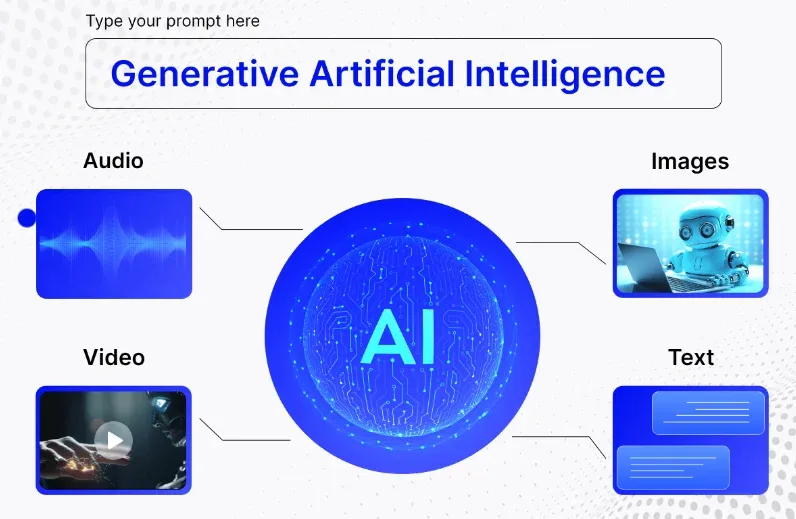
Features of Generative AI
Features of Generative AI are :
Produces original data mimicking the input data it was trained on.
Uses advanced machine-learning techniques and artificial neural networks such as multi-layered perceptions
Capable of generating high-quality content like text, images, music, and more.
Advantages of Generative AI
Let us see the pros and benefits of using Generative AI :
Learn from vast amounts of data.
Produces original outputs resembling real input data.
Excels at tasks curating fresh new content of any type
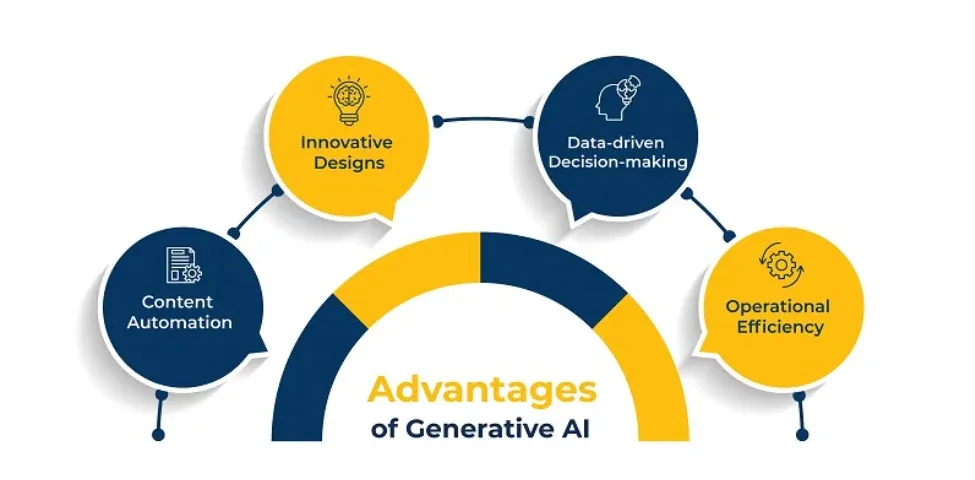
Examples and real-world applications
Let's explore some real-world examples :
OpenAI’s ChatGPT is for generating sample email templates.
Meta AI chatbot on WhatsApp.
GitHub Copilot assists developers by suggesting code snippets and completions as they write, streamlining the coding process, and reducing manual effort.
Benefits of Generative AI in Patient Support
By leveraging advanced algorithms and machine learning, Generative AI tools are reshaping patient interactions and administrative processes. Let's delve into the benefits of Generative AI Assistants to patient support.
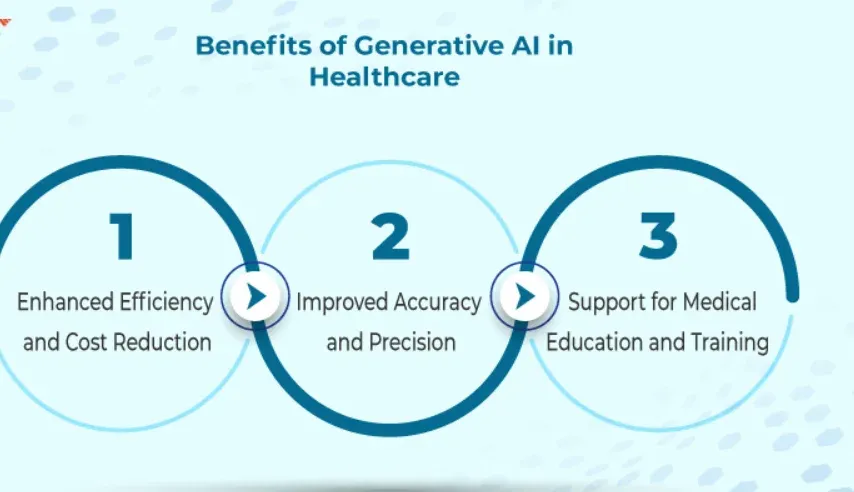
Improved diagnostics
Generative AI can help diagnose diseases more accurately and quickly. By analyzing large amounts of medical data, such as patient records, lab results, and imaging studies, AI can detect patterns that aren't immediately apparent to human doctors.
For example, generative AI models can analyze medical images and improve the detection of diseases such as cancer by highlighting problem areas.
Personalized treatment plans
One of the most promising applications of generative AI is the creation of personalized treatment plans. By analyzing a patient's individual genetic makeup, lifestyle, and medical history, AI can recommend customized treatment options that are likely to be more effective.
This personalized approach can improve patient outcomes and reduce side effects from inappropriate treatments for individuals.
Streamlined Administrative Tasks
Healthcare professionals often spend a lot of time on administrative tasks such as documentation and scheduling. Generative AI can automate many of these tasks, allowing doctors to devote more time to patient care.
For example, AI-powered systems can create clinical notes from consultations, manage appointment schedules, and handle billing processes more efficiently.
Improved Patient Engagement
Generative AI can improve patient engagement by providing personalized health information and recommendations. AI chatbots and virtual assistants can answer patients' questions, provide medication reminders, and offer health tips based on their personal health data.
This proactive approach helps patients better manage their illnesses and adhere to their treatment plans.
Predictive Analytics for Population Health
Generative AI can analyze large datasets to predict health trends and potential disease outbreaks. By identifying patterns in population health data, AI can help health authorities and healthcare providers better prepare for and respond to health crises.
Predictive analytics can also be used to allocate resources more efficiently, ensuring healthcare facilities are better prepared to serve patient needs.
Enhanced Patient Satisfaction
Ultimately, the goal of any healthcare system is to ensure patient satisfaction. Generative AI contributes significantly to this by making the patient experience smoother and more responsive. Patients' satisfaction levels naturally increase When they receive timely responses, personalized care, and constant support.
For example, a patient using a generative AI assistant to manage a chronic condition might report higher satisfaction due to the continuous and personalized support they receive.
This not only improves their quality of life but also builds trust in the healthcare system.
Practical Applications in Healthcare: Enhancing Services with Generative AI and BotPenguin
Generative AI has numerous practical applications that enhance patient support and streamline healthcare processes.
By utilizing advanced technologies, healthcare providers can offer more efficient and effective services. One such advanced technology is BotPenguin, an AI-powered chatbot platform that significantly contributes to these improvements in healthcare.
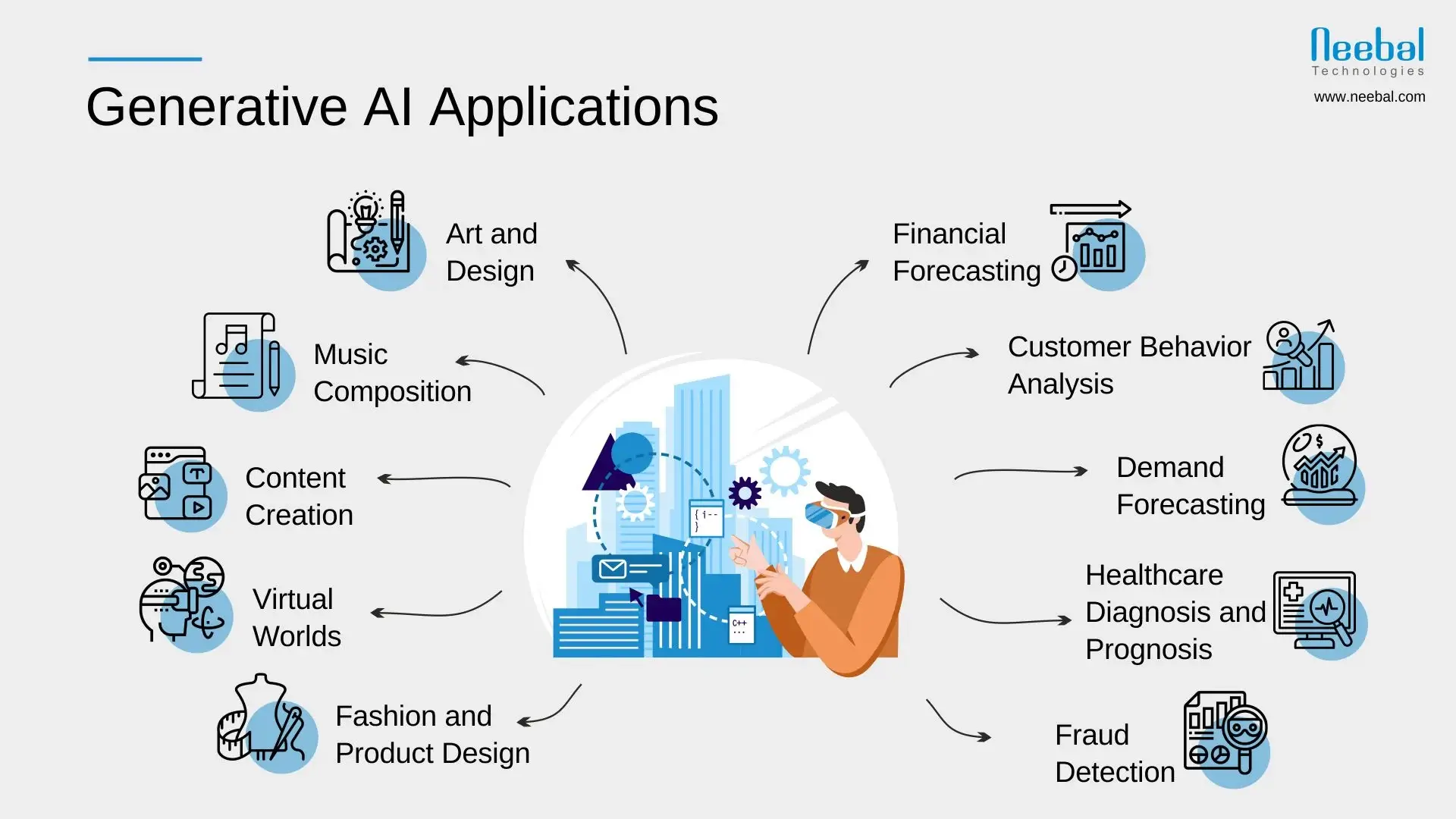
AI Chatbots for Patient Inquiries
BotPenguin has revolutionized how patient inquiries are handled in healthcare. These AI chatbots provide instant responses to common questions, reducing the workload on healthcare staff.
Patients can get answers to frequently asked questions about symptoms, medications, and procedures at any time of the day or night. This immediate access to information helps patients make informed decisions and reduces unnecessary visits to healthcare facilities.
For example, Mayo Clinic's Ask Mayo Clinic: The Mayo Clinic has integrated AI-powered chatbots into their system to assist patients with medical inquiries.
The chatbot provides patients with reliable information based on the Mayo Clinic's extensive medical database, helping them understand symptoms, get basic medical advice, and decide whether they need to see a doctor
Virtual Health Assistants for Medical Advice
BotPenguin’s advanced Generative AI Assistants offer medical advice and information, providing personalized recommendations based on patient data. Patients receive tailored advice on managing chronic conditions, medication reminders, and lifestyle changes.
AI in Appointment Scheduling and Reminders
Managing appointments is a critical aspect of healthcare administration. BotPenguin simplifies this process by automating scheduling and sending reminders. Patients receive timely reminders about upcoming appointments and can easily reschedule if needed.
This automation reduces no-show rates and ensures that patients maintain regular contact with their healthcare providers, improving adherence to treatment schedules.
For example, Cleveland Clinic: Cleveland Clinic has implemented an AI-powered appointment scheduling system that streamlines the process for patients.
The system allows patients to book, reschedule, or cancel appointments through a virtual assistant available via their website and mobile app.
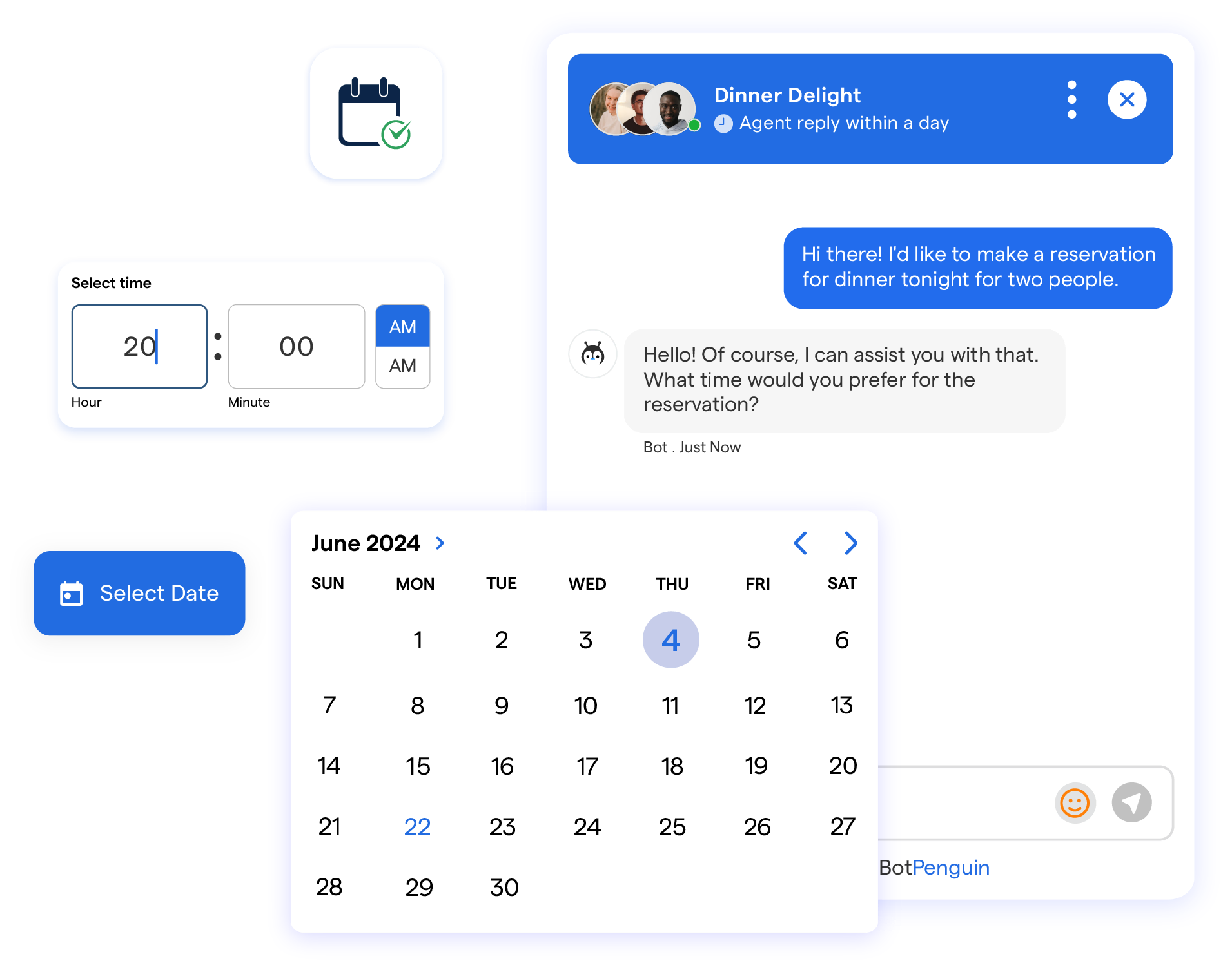
AI for Patient Follow-Ups and Feedback
Aftercare is essential for recovery and patient satisfaction. BotPenguin’s Generative AI Assistants can handle follow-ups and collect feedback, ensuring continuous patient engagement. Patients receive follow-up messages to check on their recovery progress and can provide feedback on their care experience.
This continuous engagement helps healthcare providers monitor patient outcomes and make necessary adjustments to treatment plans, leading to better health outcomes and higher patient satisfaction.
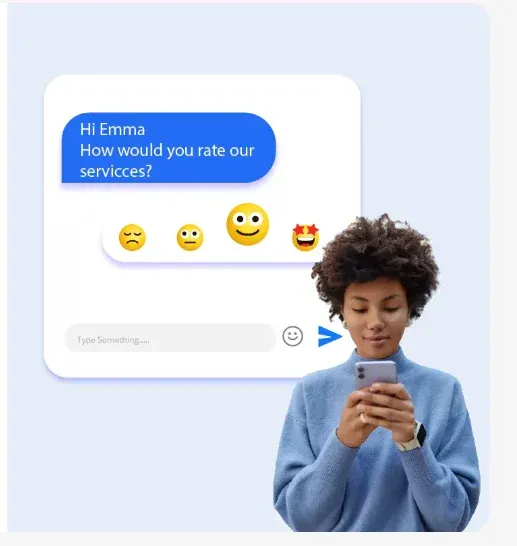
Clinical Decision Support
AI algorithms can provide decision support to clinicians analyzing patient data, evidence-based guidelines, and best clinical practices to aid in diagnosis, treatment planning, and patient management.
This can improve diagnostic accuracy, reduce medical errors, and improve overall quality of care.
Example: IBM Watson for Oncology: IBM Watson for Oncology is an AI-powered clinical decision support system that helps oncologists make evidence-based treatment decisions for cancer patients.
The AI analyzes large amounts of medical data, including patient records, clinical trials, and medical literature, to recommend personalized treatment options.
Implementing Generative AI in Healthcare Settings
Integrating Generative AI into healthcare requires careful planning and execution. It involves multiple steps, from integration to training and ensuring data security. These aspects are critical to a successful implementation.
Steps to Integrate AI Tools
Integrating AI tools into healthcare settings involves several key steps:
Assessment and Planning: Begin with a thorough assessment of the current systems and identify areas where Generative AI can add value.
Develop a detailed plan that outlines the objectives, scope, and timeline for implementation.
Choosing the Right Tools: Select the appropriate AI chatbot healthcare solutions that align with your organization’s needs.
Look for the best healthcare chatbots that offer robust features and are easy to integrate with existing systems.
Integration with Existing Systems: Work with IT teams to seamlessly integrate Generative AI Assistants into current workflows.
This might involve customizing the AI tools to ensure compatibility with electronic health records (EHR) and other healthcare software.
Testing and Validation: Conduct thorough testing to ensure the AI tools function correctly and provide accurate responses.
Validate the system’s performance in real-world scenarios before full deployment.
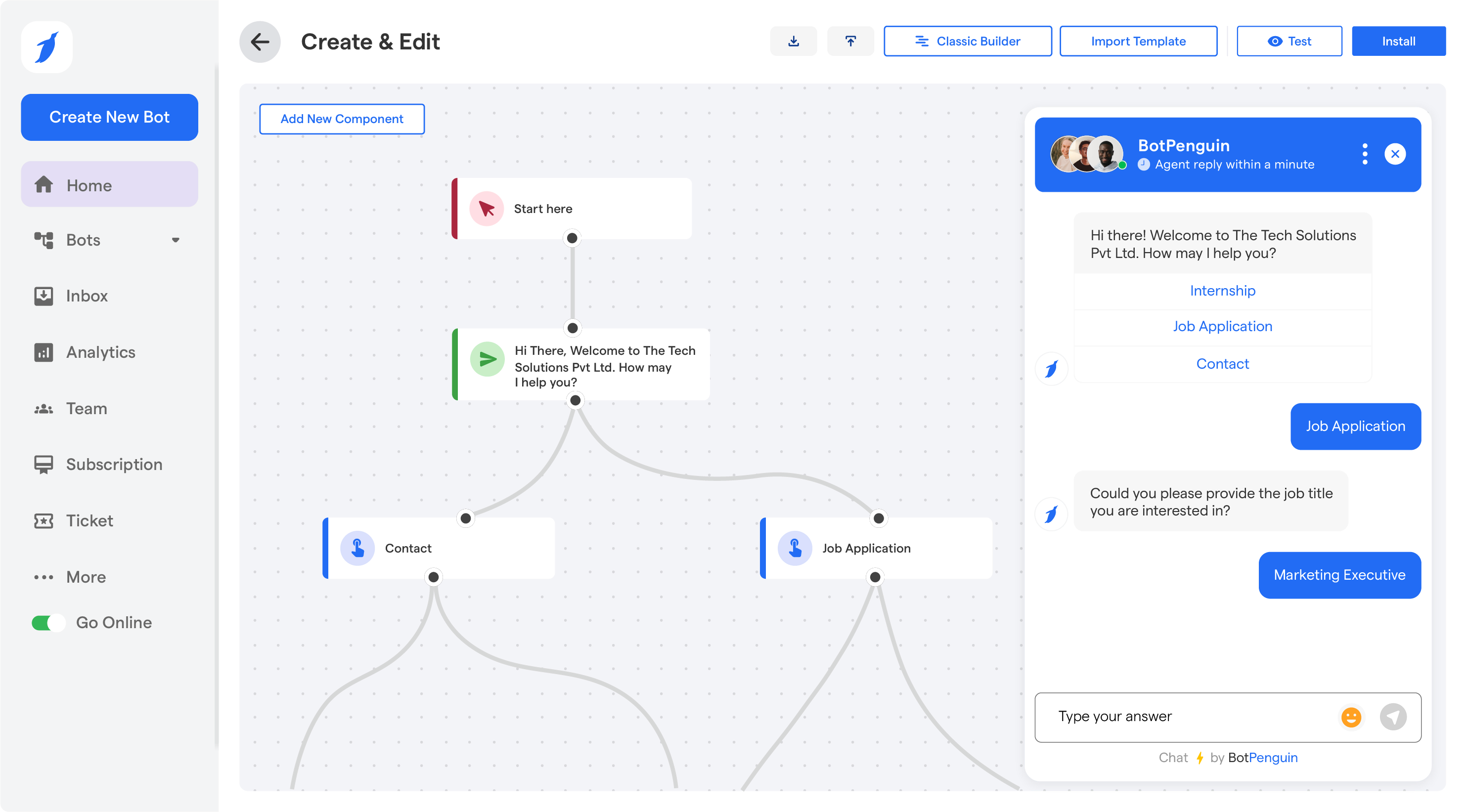
Training Staff to Use AI Assistants
Training is essential to ensure that healthcare staff can effectively use Generative AI Assistants. Proper training helps in maximizing the benefits of these tools.
Comprehensive Training Programs: Develop training programs that cover all aspects of using AI tools. This includes understanding how the ai chatbots in healthcare work, navigating the interface, and troubleshooting common issues.
Hands-On Experience: Provide hands-on training sessions where staff can practice using the AI tools in simulated environments. This builds confidence and competence in handling real patient interactions.
Ongoing Support and Education: Offer continuous education and support to keep staff updated on new features and best practices. Encourage a feedback loop where staff can share their experiences and suggest improvements.
Ensuring Data Privacy and Security
Data privacy and security are paramount when implementing Generative AI in healthcare. Protecting patient information is a top priority.
Compliance with Regulations: Ensure that the AI tools comply with healthcare regulations such as HIPAA. This includes securing patient data and maintaining confidentiality.
Robust Security Measures: Implement advanced security protocols to protect against data breaches. Use encryption, secure authentication methods, and regular security audits to safeguard patient information.
Data Management Policies: Establish clear data management policies that outline how patient data will be collected, stored, and used. Ensure transparency with patients about how their information is handled by ai chatbot for healthcare systems.
Cost Considerations and ROI
Understanding the costs and potential return on investment (ROI) is crucial for successful implementation.
Initial Investment: Evaluate the initial costs of purchasing and integrating Generative AI tools. This includes software, hardware, and any necessary infrastructure upgrades.
Operational Costs: Consider the ongoing costs of maintaining and updating the AI systems. Factor in expenses related to staff training and support.
Calculating ROI: Measure the ROI by assessing the improvements in efficiency, patient satisfaction, and cost savings. Track metrics such as reduced administrative workload, faster response times, and improved patient outcomes to quantify the benefits.
Challenges and Solutions
Implementing Generative AI in healthcare is not without its hurdles. Key challenges include data privacy concerns, technology adoption barriers, ensuring accuracy and reliability, and addressing patient trust issues. Each challenge has specific solutions to ensure smooth integration and operation.
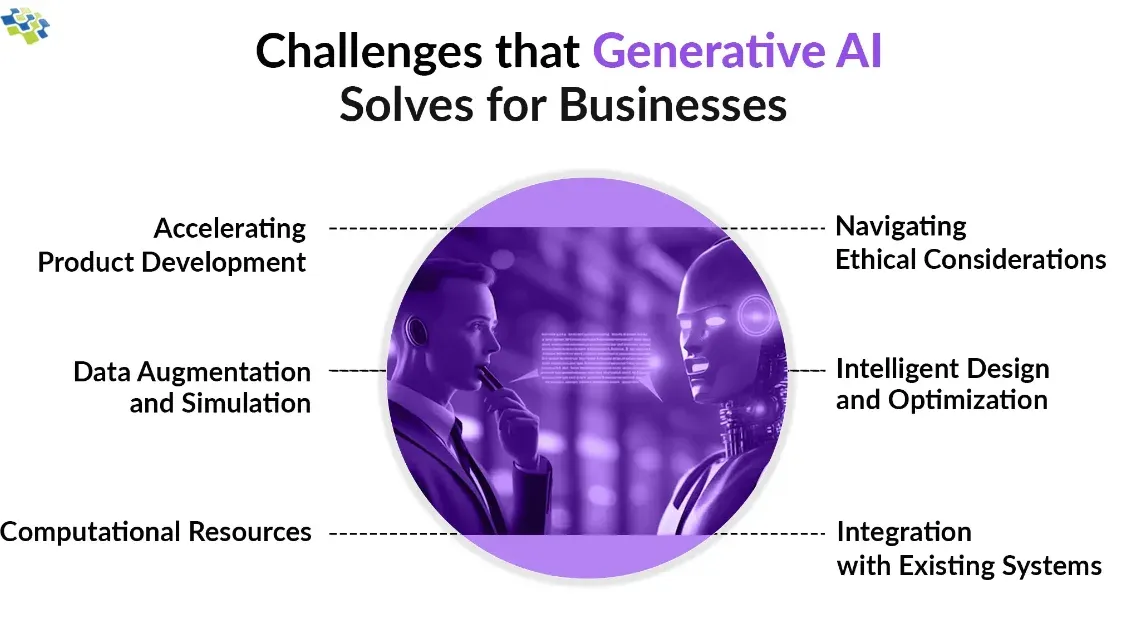
Data Privacy Concerns
Data privacy is a critical concern in healthcare, particularly with the use of Generative AI.
Challenge: Protecting sensitive patient information from unauthorized access and breaches is paramount. Healthcare providers must comply with regulations such as HIPAA to safeguard patient data.
Solution: Implement robust encryption protocols and secure authentication methods to protect data.Clear data management policies should be established, ensuring transparency about how patient data is used by ai chatbots in healthcare.
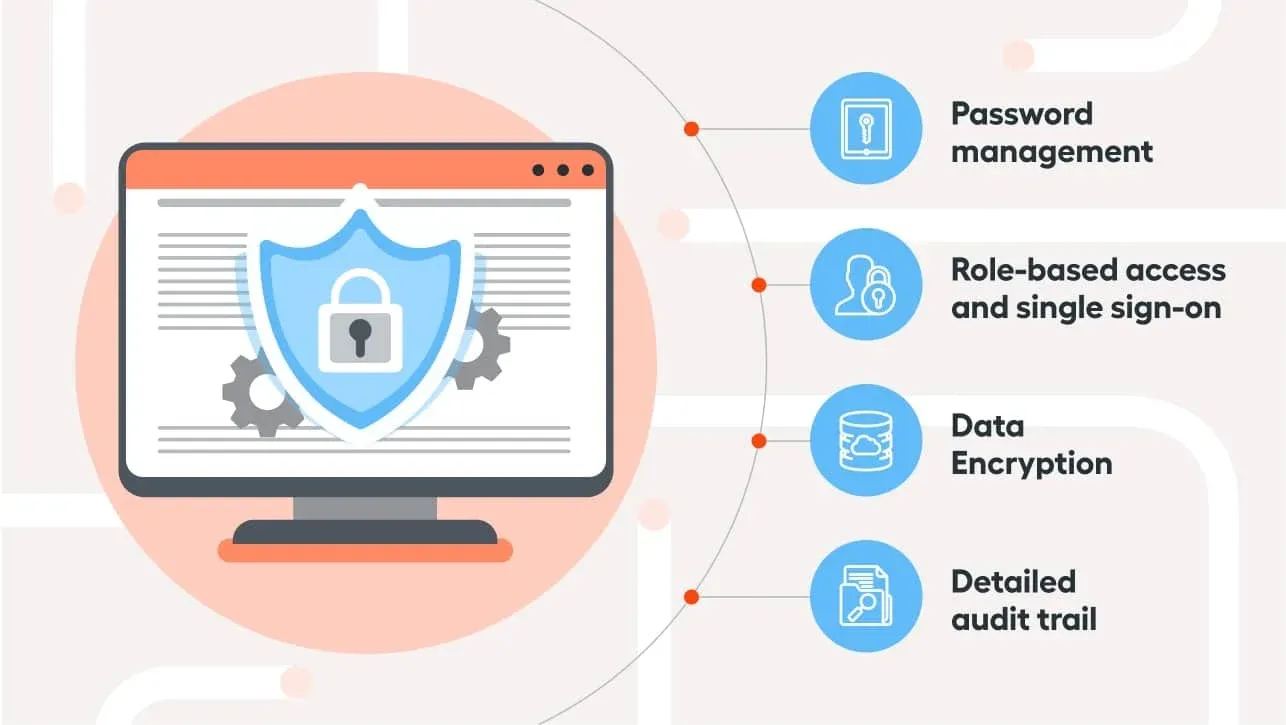
Technology Adoption Barriers
Adopting new technology can be challenging, especially in a traditionally conservative field like healthcare.
Challenge: Resistance to change and the complexity of integrating new systems can hinder the adoption of Generative AI Assistants.
Healthcare professionals may be reluctant to rely on AI due to unfamiliarity and fear of job displacement.
Solution: Provide comprehensive training programs to help staff understand and use the new technology effectively.
Highlight the benefits of AI chatbot healthcare solutions in reducing workload and enhancing patient care. Foster an environment that encourages innovation and continuous learning.
Ensuring Accuracy and Reliability
Accuracy and reliability are crucial for the effective use of Generative AI in healthcare.
Challenge: AI systems must provide accurate and reliable information to be trusted by healthcare providers and patients. Errors can lead to serious health consequences.
Solution: Implement rigorous testing and validation processes to ensure the AI tools are reliable. Continuously monitor and update the AI systems to improve their accuracy.
Use real-world data to train ai chatbot for healthcare systems, ensuring they can handle diverse scenarios accurately.
Addressing Patient Trust Issues
Building and maintaining patient trust is essential for the success of Generative AI Assistants in healthcare.
Challenge: Patients may be sceptical about interacting with AI systems for their healthcare needs, fearing a lack of personal touch and confidentiality issues.
Solution: Communicate clearly with patients about the benefits and limitations of Generative AI. Ensure that AI systems are designed to complement, not replace, human care.
Use the best healthcare chatbots that provide empathetic and personalized interactions, making patients feel valued and understood.
Conclusion
Integrating generative AI into healthcare can significantly improve patient care and support. By improving diagnostic capabilities, personalizing treatment plans, accelerating drug discovery, streamlining administrative tasks, improving patient engagement, and enabling predictive analytics, generative AI can significantly improve patient care and operational efficiency.
To deploy generative AI to improve patient care, it is important to invest in training staff who can use generative AI tools, while taking into account data protection and ethical issues to ensure a transparent process.
Botpenguin, an AI chatbot designed for healthcare, offers an easy setup and seamless integration into existing systems.
Imagine reducing administrative burdens while providing round-the-clock patient support with unparalleled accuracy and reliability.
With BotPenguin, healthcare providers can tap into the AI hype and address pain points effectively, ensuring they are not left behind in this technological wave.
Don't miss out on transforming your healthcare services with BotPenguin. Embrace the future of patient support and care with a top generative AI solution!
Frequently Asked Questions (FAQs)
How can Generative AI Assistants improve patient support?
Generative AI Assistants enhance patient support by providing instant, accurate responses to inquiries, personalized health advice, and 24/7 availability, reducing the workload on healthcare staff and improving patient satisfaction.
Are Generative AI Assistants secure for handling patient data?
Yes, they use advanced encryption protocols and comply with healthcare regulations like HIPAA, ensuring that patient data is securely managed and protected against unauthorized access and breaches.
What types of tasks can Generative AI Assistants perform?
Generative AI Assistants can handle tasks such as answering patient inquiries, scheduling appointments, sending reminders, providing medical advice, and conducting follow-ups, thereby streamlining administrative processes and enhancing patient care.
How do Generative AI Assistants handle patient inquiries?
They use natural language processing to understand and respond to patient questions accurately, providing relevant information or directing patients to appropriate healthcare resources, ensuring timely and effective communication.
What are the benefits of using Generative AI in healthcare?
Benefits include improved efficiency in administrative tasks, enhanced patient satisfaction through personalized interactions, 24/7 support availability, and reduced workload for healthcare professionals, leading to better overall healthcare delivery.
How can healthcare providers implement Generative AI Assistants?
Healthcare providers can integrate Generative AI Assistants by assessing current systems, choosing the right AI tools, training staff, ensuring data privacy, and calculating the cost and return on investment to optimize the implementation process.

